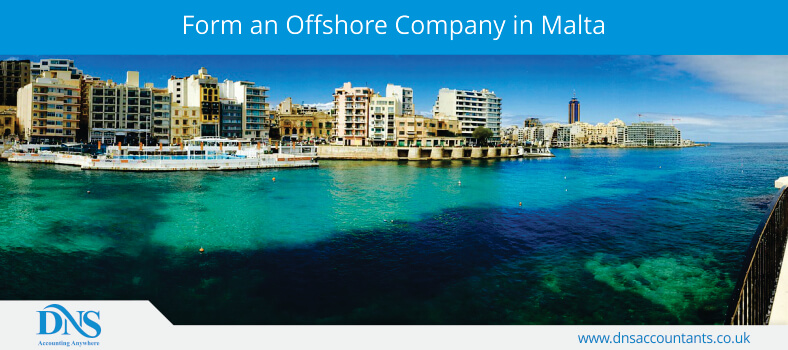Offshore Company Formation – Malta
Economy of Malta
Malta has an economy that is based on industries and services. This country’s economy is classified as an advanced and developed economy, by the International Monetary Fund. Malta is also considered as a high income economy country, by the World Bank.
This country has an economy that is driven by innovations. This has been declared by the World Economic Forum. Malta is a member of European Union and also of Eurozone. This country has formally adopted Euro as its national and official currency, on January 1st, in the year 2008.
It is a country that is situated in a strategic location. This strategic location of Malta makes this country’s economy stronger. It is in the middle of the Mediterranean Sea and at across road between Europe, Middle East and North Africa.
Malta is a fully developed and an open market economy. It has a multi-lingual population. Majority of Maltese people speak English.
The per capita GDP of Malta is US $ 29,200, as adjusted by Purchasing Power Parity. It is ranked 15th, in the list of European Union countries, in term of per capita purchasing power.
The economy of this country is dependent on foreign trade. It is also dependent on its sector of manufacturing. The manufacturing industry of this country, mainly manufactures electronic goods and pharmaceutical products.
Tourism is an important revenue earner for Malta. This tourism industry is steadily on the increase, in this country, since the year, 1987.
After the setback on world economy due the attack on September 11, Malta could sustain the rapid growth of its economy due to favourable international economic climate, the availability of domestic resources, and its industrial policies that support foreign export-oriented investment.
The Central Bank of Malta has kept a strong control over the consumer price inflation, that did not exceed 2.2%. It has a strong manufacturing base of high value-added products, which makes economy of this country, even stronger.
Why form an offshore company in Malta?
Malta is very important location for those foreign investors who are into trading within the European Union (EU). It also has double taxation treaties with majority of the countries throughout the world. There are various industries for which this region is profitable – shipping and airlines. You can easily form a Private Limited Company and a Private Exempt Limited Company. Also foreigners are not charged any income tax on the profits made outside of Malta.

Basic Incorporation Package
Form your offshore company anywhere in the world within a week. No hidden price, no extra charges
With this package, we will provide you with a compulsory registered office address and dedicated account manager to handle all your queries. Also all the compulsory government fees would be paid up when the incorporation process takes place.
In addition to this, we will provide you with the documents necessary to incorporate a company – certificate of incorporation, appointment of directors, share certificates, company seal memorandum and articles of association.
Advanced Incorporation Package
This package will also include banking solutions and assure full confidentiality of your identity in addition to the full services of our Basic Incorporation Package.
We will provide you with a bank account and also with professional resident director and resident shareholder. This will help you in case you do not want your names to be displayed publicly. The Nominee director will act on your behalf by signing contracts, MoU’s and other documents related to your business.
All these will be provided in addition to company incorporation, registered address and other services included in the Basic Incorporation Package.
Professional Backed Package
This package will take care of the ever changing intergovernmental agreements which are being exercised by most of the countries.
More and more countries are signing up to international trade agreements which means more robust process. The benefit of our package is that it will facilitate your business through the help of qualified accountants, directors, international lawyers, tax advisors and investment advisors. It will ensure that your business runs smoothly and with full privacy and confidentiality.
Customized Package
Customize as per your requirements – whenever and wherever required.
Select what all services you require in what all jurisdiction. You can upgrade the services anytime you want. Choose from a wide range of professional services in addition to the type of company and bank account you want to set up. With the ever changing laws, you can ask our domain experts to guide you through the right direction.
Benefits of Forming an Offshore Company in Malta
- O% inheritance tax
- 0% tax on gifts and wealth
- 5% tax on real estate
- 2% tax on transfer of shares
- 15% flat tax rate for HNWI permit holders
